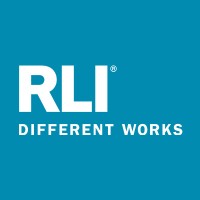Real Estate Insurance
Real estate insurance safeguards your investment from start to finish
Professional real estate insurance
Real estate insurance, also known as property and casualty insurance for real estate, is a type of coverage that safeguards property owners, landlords, real estate investors, and property management companies against various risks associated with real estate holdings. This insurance is designed to protect real estate assets, both residential and commercial, from damage, loss, or liability. It typically includes coverage for the physical structure, as well as liability protection in case someone is injured on the property.
Real estate insurance can also cover additional structures on the property, personal property within the rental units, and loss of rental income due to covered events like fires or natural disasters. It is a vital component of risk management for individuals and entities involved in the ownership and management of real estate, providing financial security and peace of mind in an unpredictable real estate market.
Why is real estate insurance important?
Real estate insurance is essential for several key reasons:
Property Protection: Real estate is a significant investment, and insurance safeguards it from a wide range of risks, including damage from fires, storms, vandalism, and theft. Without insurance, property owners could face substantial financial losses.
Liability Coverage: Real estate insurance includes liability coverage, which protects property owners and landlords from legal claims and lawsuits if someone is injured on the property or if property-related issues cause harm to others. This coverage is crucial for protecting assets and personal finances.
Mortgage and Lender Requirements: Mortgage lenders often require borrowers to have insurance on the property as a condition of the loan. It ensures that the lender’s investment is protected, and without insurance, it may be challenging to secure financing for a property.
Protection of Rental Income: Landlords and property investors depend on rental income for their cash flow. Real estate insurance can include coverage for loss of rental income due to covered events, helping property owners maintain financial stability during disruptions.
Risk Management: Real estate is susceptible to various risks, both natural and human-made. Insurance provides a crucial risk management tool, allowing property owners to transfer the financial burden of unexpected events to the insurance company.
Compliance with Local Regulations: In many areas, property owners are required by law to have certain types of insurance coverage, such as liability insurance for rental properties. Compliance with these regulations is necessary to avoid legal penalties.
Protection of Equity: For homeowners, insurance helps protect the equity they have built in their property. In the event of a disaster, insurance can cover the cost of rebuilding or repairing the home, preserving its value.
Peace of Mind: Real estate insurance provides peace of mind to property owners, landlords, and investors. Knowing that they are financially protected against unforeseen events allows them to focus on property management and investment strategies without constant worry about potential losses.
Asset Preservation: Insurance helps preserve real estate assets, ensuring that property owners can recover financially and rebuild or repair their properties if they are damaged or destroyed.
Protection for Property Managers: Property management companies and professionals benefit from insurance coverage that shields them from liability claims related to property management activities, including maintenance, repairs, and tenant interactions.
Commercial Insurance Quote
Who benefits from real estate insurance?
Real estate insurance offers benefits to a wide range of individuals, entities, and professionals involved in real estate ownership, management, and investment. Here are some of the key beneficiaries of real estate insurance:
Property Owners: Whether it’s a homeowner or a commercial property owner, real estate insurance protects their valuable asset against various risks, including damage, theft, or liability claims.
Landlords: Landlords who rent out residential or commercial properties benefit from insurance that covers property damage and liability. It provides financial protection in case of tenant-related issues or property-related accidents.
Real Estate Investors: Real estate investors who own multiple properties rely on insurance to safeguard their investment portfolio. Insurance helps mitigate risks and protect cash flow.
Property Managers: Property management companies and professionals benefit from insurance coverage that shields them from liability claims related to property management activities, such as maintenance, repairs, and tenant interactions.
Commercial Property Owners: Owners of commercial properties, including retail spaces, offices, and industrial facilities, use real estate insurance to protect their investments and rental income.
Homeowners’ Associations: HOAs (Homeowners’ Associations) often purchase insurance for common areas and shared facilities in residential communities, ensuring protection for all members.
Real Estate Developers: Developers of residential or commercial properties utilize insurance to protect their construction projects and mitigate potential liabilities during and after construction.
Mortgage Lenders: Lenders require borrowers to have insurance on the property as a condition of the loan to protect their interests and collateral.
Real Estate Agents and Brokers: Real estate professionals may carry professional liability insurance (errors and omissions insurance) to protect against claims related to property transactions.
Real Estate Investment Trusts (REITs): REITs, which invest in income-generating real estate properties, use insurance to protect their assets and ensure compliance with regulations.
Tenant Businesses: Commercial tenants often require liability insurance to protect themselves and their businesses in case of accidents or incidents on the leased property.
Property Developers: Developers of new construction projects benefit from insurance to cover potential construction defects and liabilities during the development phase.
Vacation Rental Owners: Owners of vacation rental properties utilize insurance to protect their property and liability when renting to guests.
Condominium Associations: Condo associations purchase insurance for common areas and shared structures in condominium complexes.
Property Appraisers and Inspectors: Professionals in the real estate industry may carry insurance to protect against potential errors, omissions, or liability claims in their assessments and inspections.
In essence, real estate insurance is a versatile tool that provides protection and peace of mind to various stakeholders in the real estate sector. It safeguards both physical assets and financial interests, allowing individuals and entities to manage real estate risks effectively and navigate the complexities of property ownership, management, and investment.

As a real estate professional, protecting your business with an insurance policy is crucial.
Reach out to us for a personalized consultation and explore the coverage options that suit your specific needs.
Companies We Work With






















